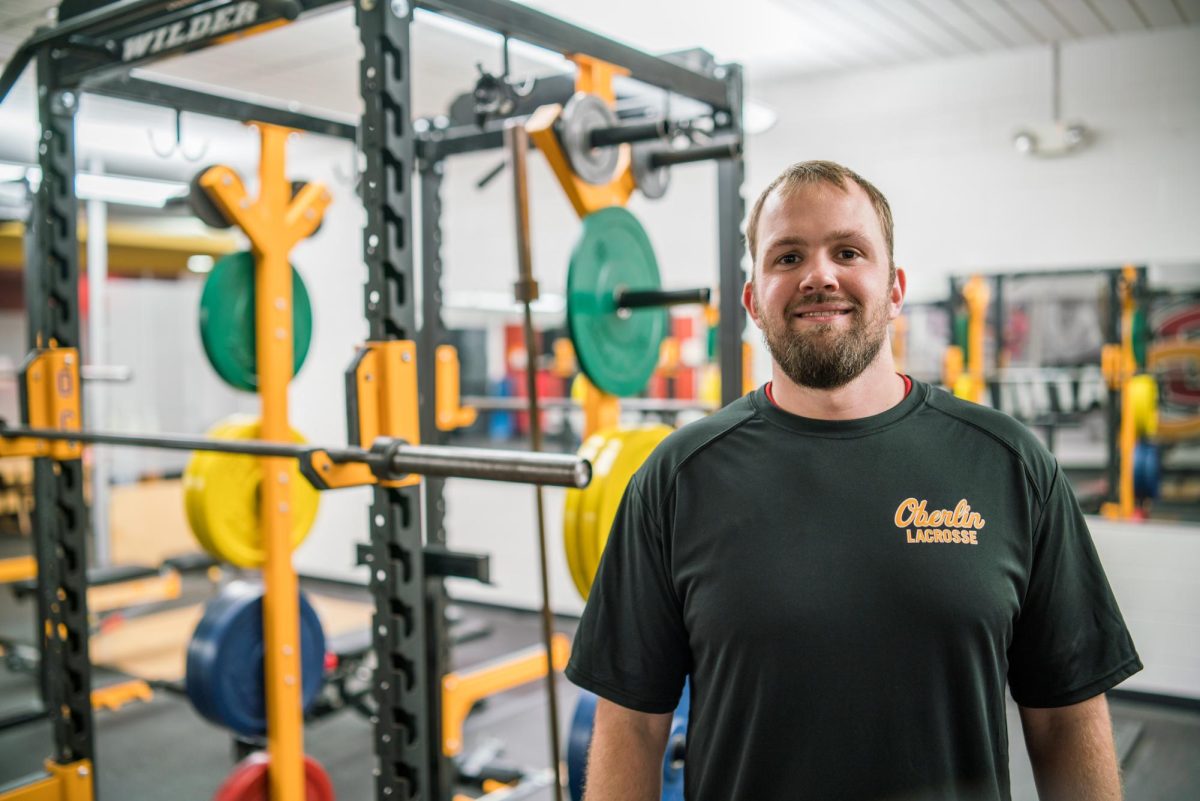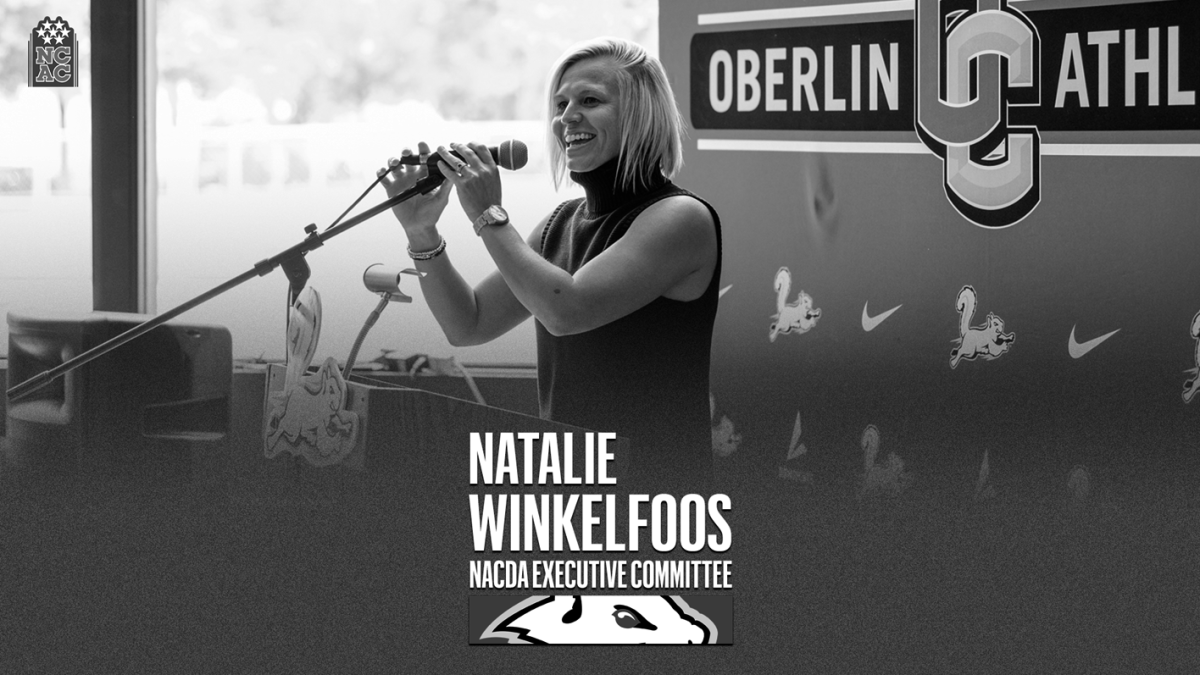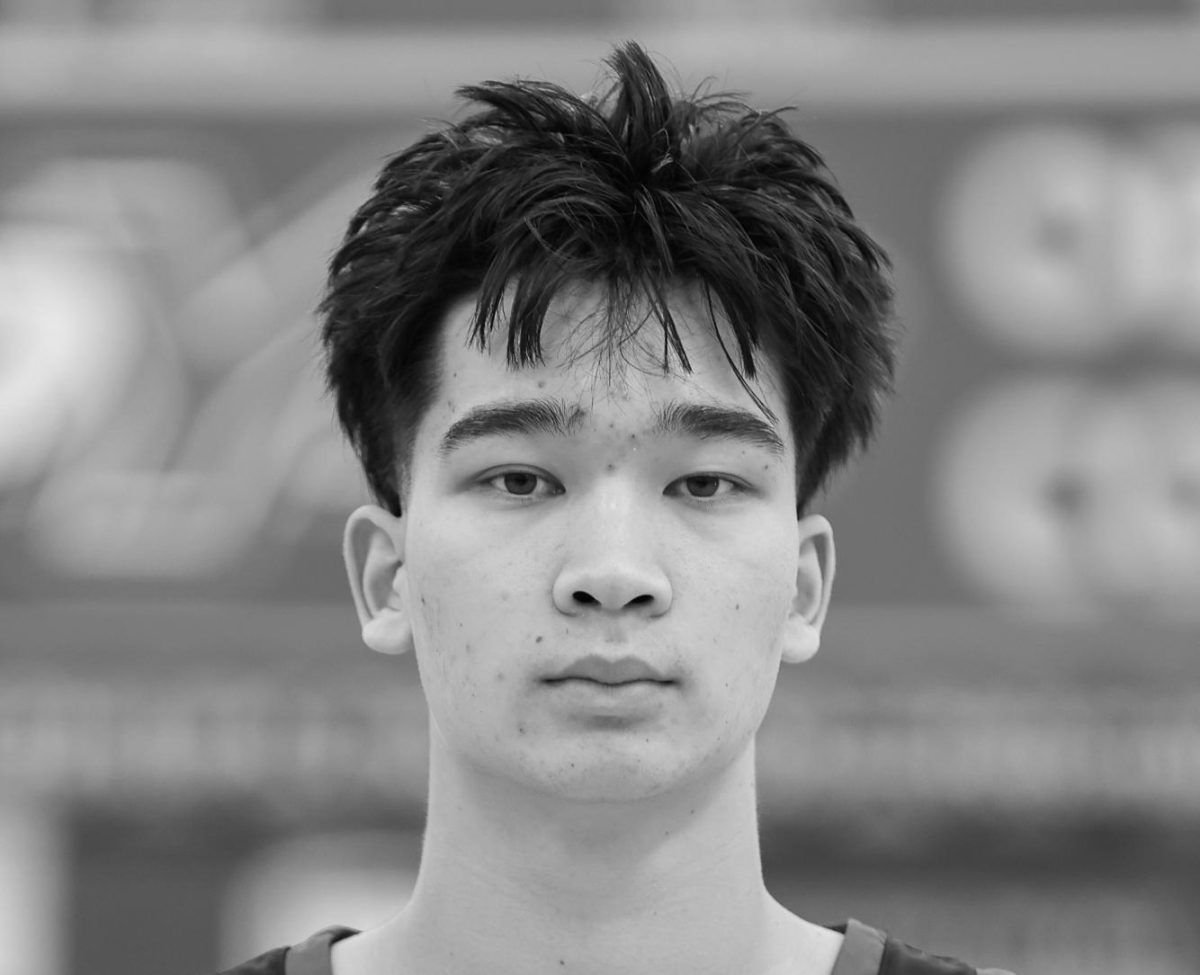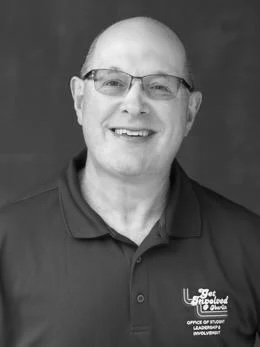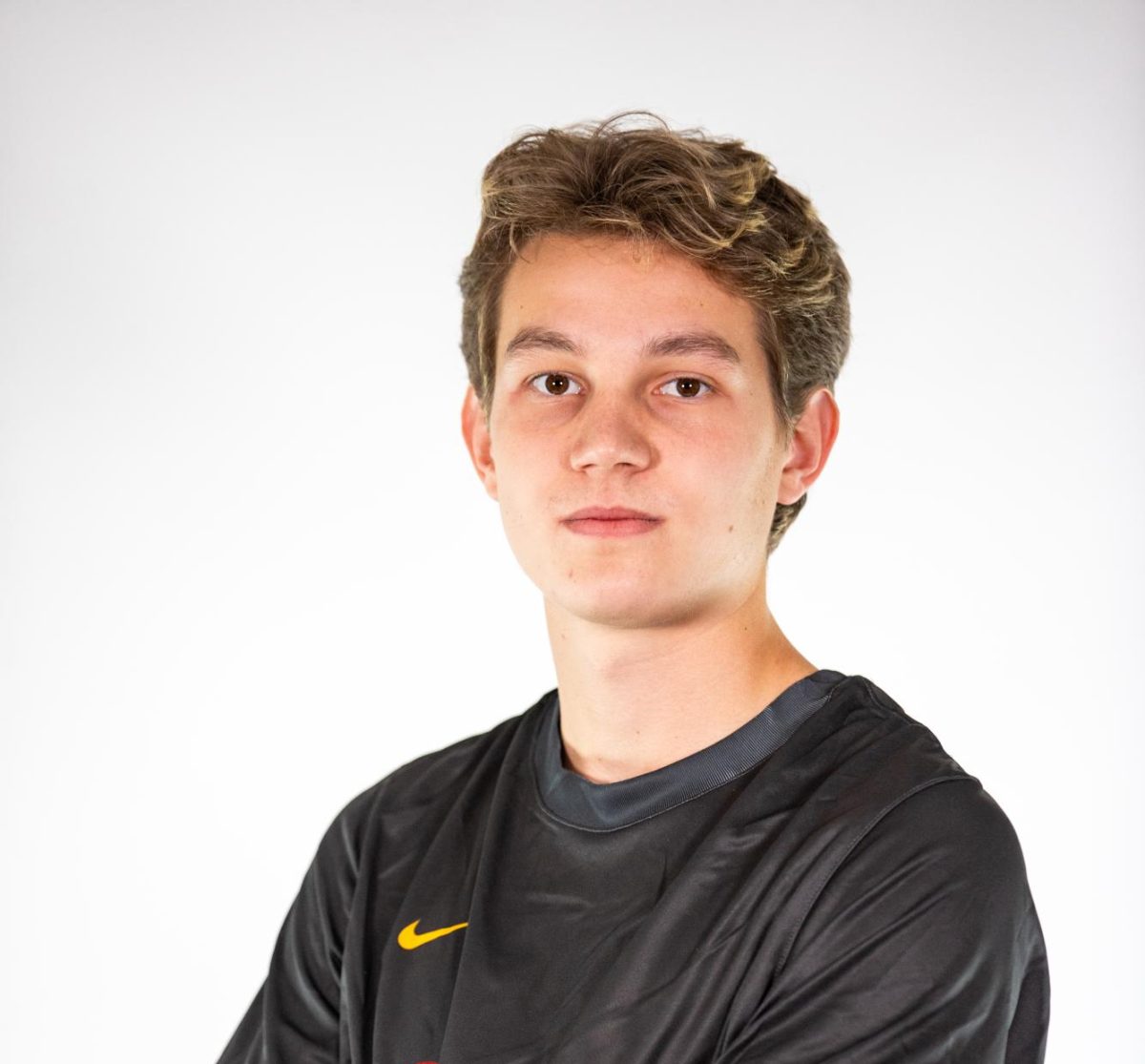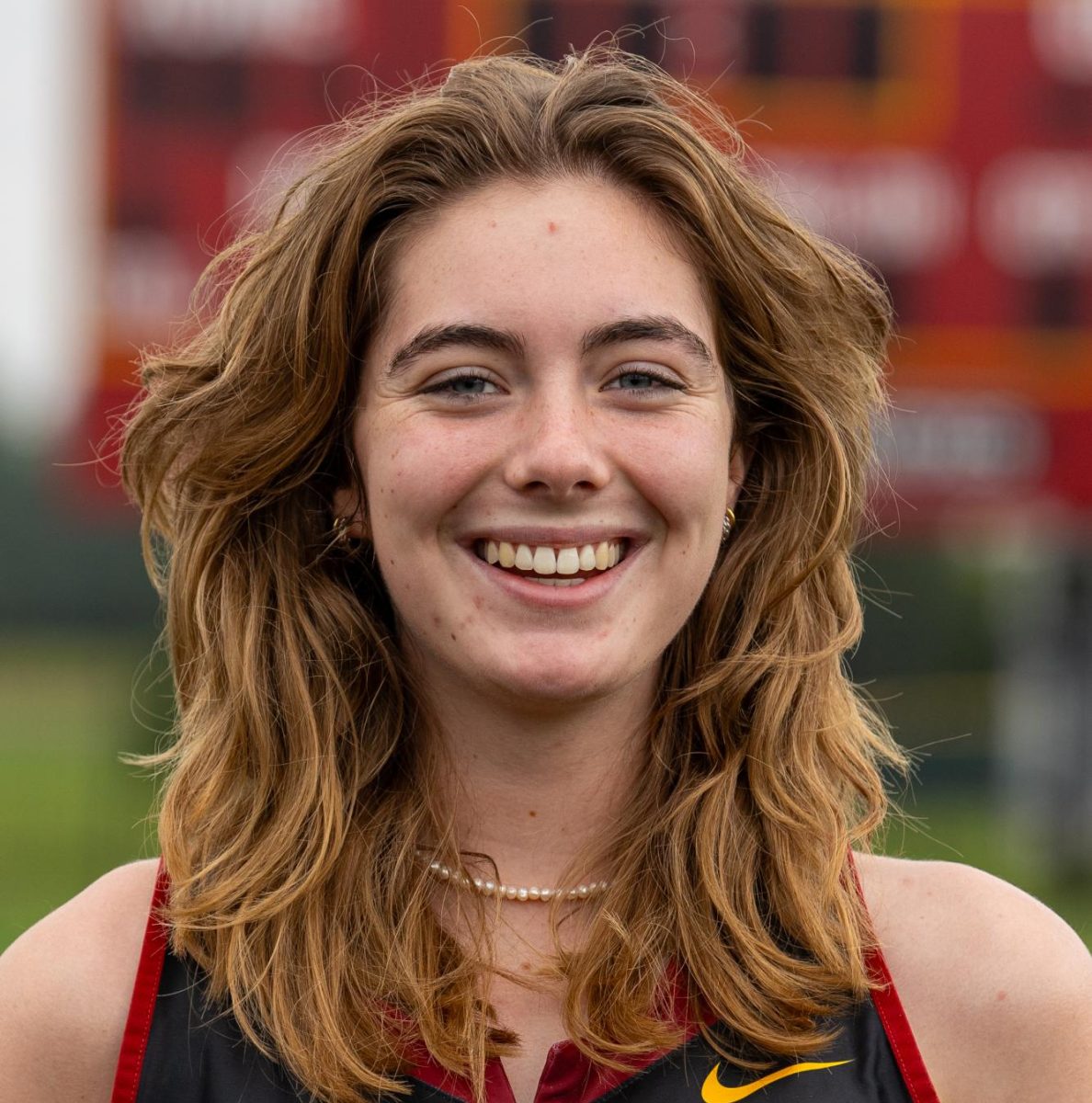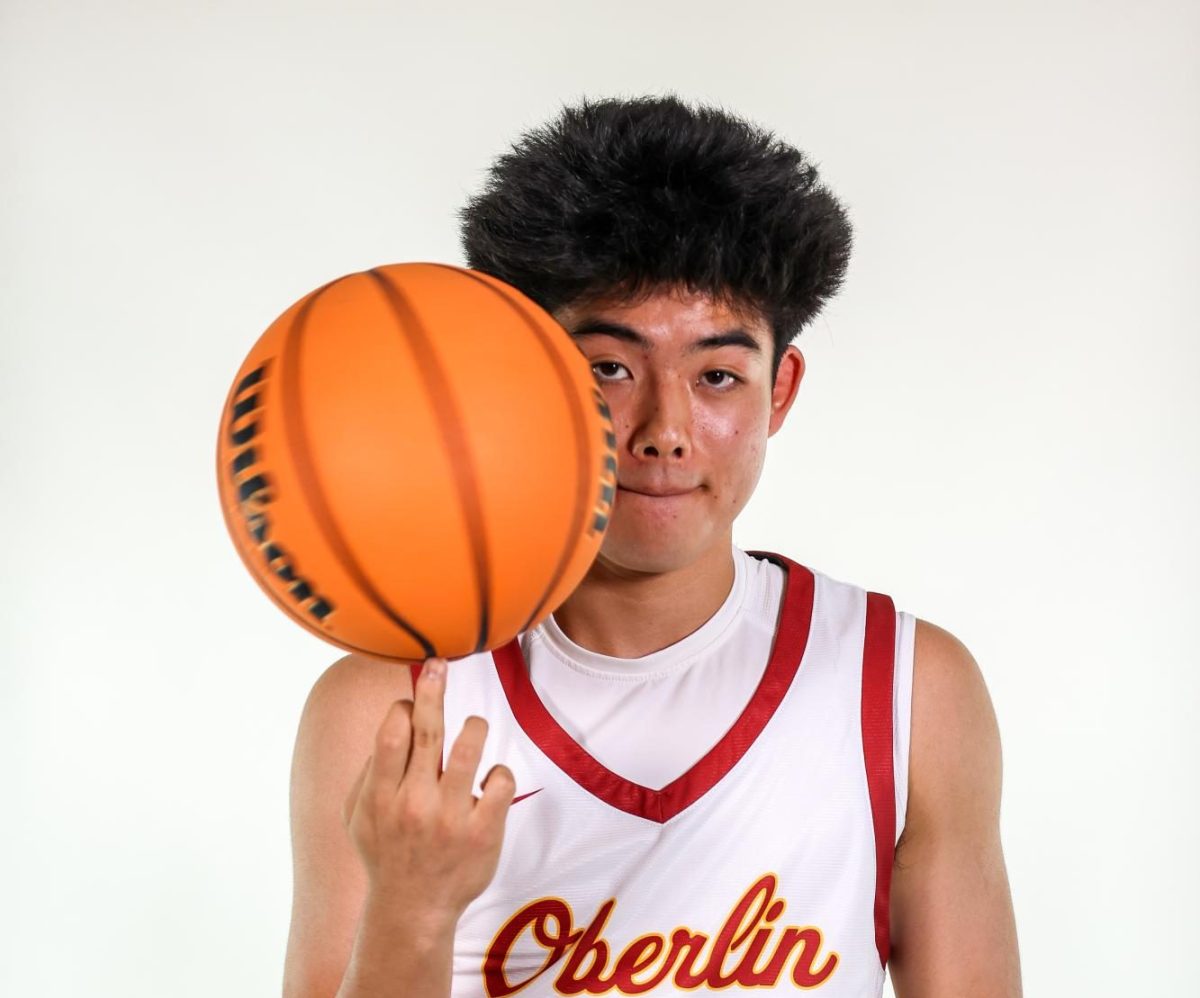Alex Cranmer is a former collegiate rugby player for the Bowling Green State University Falcons and currently works with Oberlin’s athletic teams as a T3 trainer. He was a five-time Mid-American Rugby Conference championship winner with the Falcons — who have been conference champions for 40 consecutive years — and graduated in 2018 with a degree in Education with a focus in Exercise Science and Entrepreneurship.
Cranmer wasn’t always a rugby player. As a kid, he was an offensive lineman on his youth football team, but always wished that he had more action than blocking. When he was 15, his friends, who were also offensive linemen, started playing rugby and got to run with the ball, so he decided to give it a shot, too.
“What really got me interested [in rugby] is that I played football, and I played on the offensive line, and I saw my friends who were also on the offensive line,” Cranmer said. “They were allowed to run with the ball [in rugby] and I really wanted to do that, so I ended up trying out … and started playing.”
Cranmer was looking for schools that had elite rugby programs during his college search and was heavily influenced by his peers’ experiences at Bowling Green.
“My coaches both played rugby [at Bowling Green], and I had a lot of friends that played there too,” Cranmer said. “I actually got a small scholarship to go there and play, so that was really cool.”
Rugby is not a varsity sport under the NCAA, so Cranmer competed on Bowling Green’s varsity club team, which means the team is only partially funded by the school. The Falcons are a part of the Division I-AA conference and play against other top varsity club teams, including The Ohio State University, the University of Pittsburgh, and the University of Michigan. They were recently ranked second in the nation by the National Collegiate Rugby Coaches’ Poll.
As a part of the Falcons, Cranmer was a flanker, which means he was mostly in charge of support. His main tasks on the field were to ensure his team kept possession of the ball and making tackles on defense.
Since they were a top team, the Falcons went on multiple national and international trips for competitions while Cranmer was part of the team. Although those trips were exciting and memorable, they aren’t what Cranmer misses the most about his playing days.
“The parts I miss the most are just the camaraderie, being around teammates,” he said. “I just really miss the camaraderie and the competitiveness — that’s something I definitely still wish I had in my life, something to compete in.”
Although Cranmer’s collegiate career was filled with highlights, it wasn’t all positive. He dealt with injuries that took him out of the game and required a lot of time and patience during recovery.
“I had an AC joint injury: I separated my shoulder my [third] year, so that put me out for a good three or four months,” Cranmer said. “That was really disheartening just because I couldn’t play and it was very painful — even sleeping was uncomfortable depending on my position. But definitely the biggest challenge was just dealing with injuries.”
The Falcons have consistently been at the top of collegiate rugby for a few years and have gone all the way to the national championship game in back-to-back years. However, Cranmer wasn’t able to win during his time at Bowling Green.
“We lost in the national championship game my senior year, so that was very, very tough to go through, but we bounced back the following year and they ended up winning,” Cranmer said. “It was right after I graduated, so I wasn’t eligible anymore, but I’m proud to be a member of that team without being on the field.”
Growing up, Cranmer always knew that he wanted to pursue sports as his career, preferably working with athletes as a trainer or coach. As a former collegiate athlete, he understands the commitment it takes to be a student athlete as well as the toll it can take on a player’s mental and physical health. That’s why he approaches his job as an athletic trainer with an open and understanding mind.
“Rugby, in general, gives me some perspective on what athletes go through and how to approach an athlete versus how not to,” Cranmer said. “I tend to check in, make sure [my athletes] are feeling good about the workout, help [them] out, of course, if [they] need it. I think knowing what I needed as an athlete from a strength coach now helps me provide that to our athletes here at Oberlin. I also understand that [athletes] have to dedicate a lot of time to [their] sport and [are] also students and very busy so I understand that there’s going to be ups and downs, sometimes stress is higher. Let’s not add on to that by being a screaming, yelling coach or making the workout too intense depending on what’s going on during the season.”
This is Cranmer’s first year at Oberlin, and he is looking forward to connecting more with his athletes and pushing them to be the best they can be.
“The athletes are fun, the students are too, and I think Oberlin is a great place,” Cranmer said. “I’m really excited to be a part of it.”


